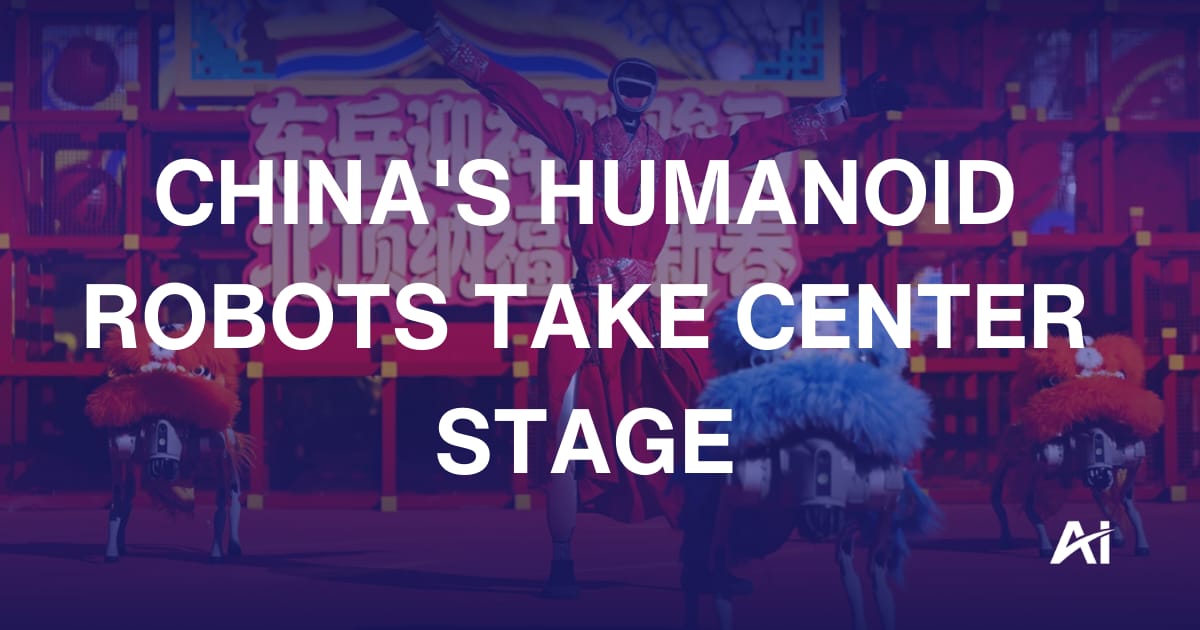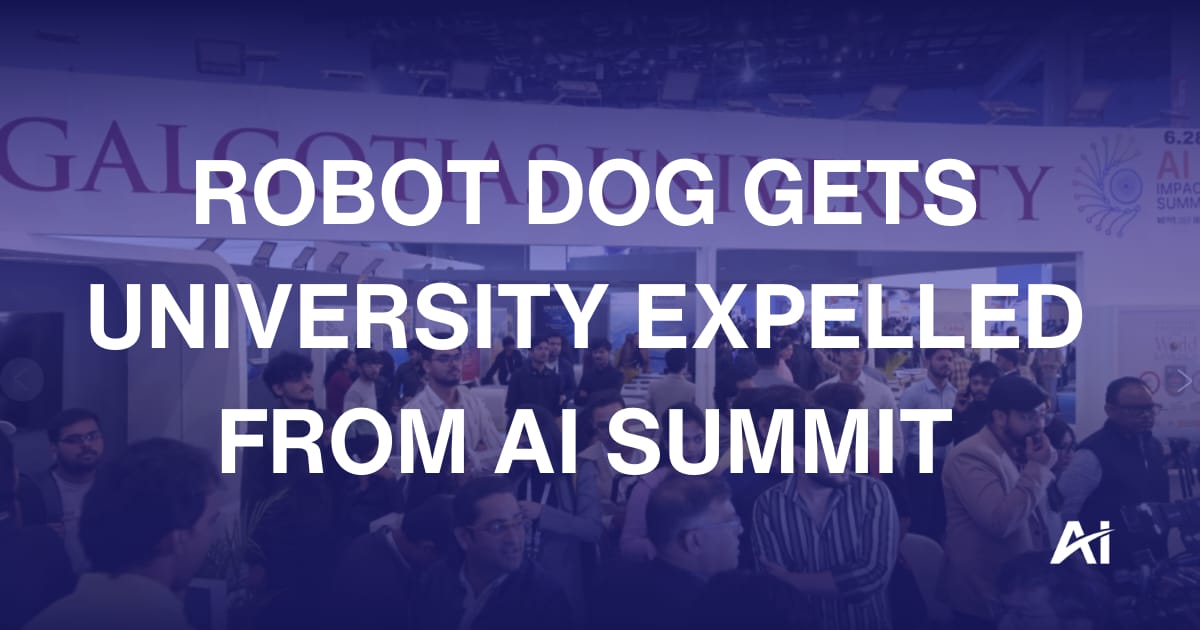
Subscribe to our free Newsletter
💌 Stay ahead with AI and receive:
✅ Access our Free Community and join 400K+ professionals learning AI
✅ 35% Discount for ChatNode
Welcome to The AI Report!
.png)

WORK WITH US • COMMUNITY • PODCASTS

Tuesday’s AI Report
• 1. 🔥 NVIDIA under fire amid trade talks
• 2. 🧠 Take a smarter approach to integration with IBM
• 3. 🌍 How this business uses AI to slash HR costs
• 4. 📈 Create McKinsey-grade decks with Xavier AI
• 5. 💡 Partner Perspectives
• 6. ⚙️ Trending AI tools
• 7. 🚨 Google lays off 200 AI workers
• 8. ⚡ OpenAI releases advanced coding tool
• 9. 📑 Recommended resources
Read Time: 5 minutes
❓Tuesday’s Partner Perspective: Can AI-powered platforms like Google’s Notebook LM become more than just summarization tools? Scroll down to find out what Agentic Brain’s lead UI/UX developer, Joe Jepsen, thinks ⬇️
✅ Refer your friends and unlock rewards. Scroll to the bottom to find out more!


NVIDIA under fire amid trade talks
🚨 Our Report
Regulators from China’s top antitrust regulator (the State Administration for Market Regulation, or SAMR) have accused US AI chip manufacturer NVIDIA of violating antitrust laws.
🔓 Key Points
The accusations stem from a preliminary investigation, conducted in December, into NVIDIA’s 2019 acquisition of chip designer Mellanox Technologies, for $7B (which was initially approved by Beijing).
In response, NVIIDA has stated that it will “continue to cooperate with all relevant government agencies as they evaluate the impact of export controls on competition in the commercial markets."
Although China is continuing its investigation and hasn’t yet given NVIDIA any penalty for its potential violation, it is likely to escalate tensions during the current trade talks between the two, taking place this week.
🔐 Relevance
Tensions between China and the US, particularly over AI chip export controls, have been rising for months, and NVIDIA, being one of the biggest US chip manufacturers, has been at the centre of it. First, the US Department of Commerce overturned former President Biden’s AI export rule, which placed heavy restrictions on the export of advanced chips to China, in an effort to protect America’s AI leadership. Next, it placed licensing agreements on AI chips being exported from the US to China. Then, US chip makers were given the go-ahead to continue to export to China, but were required to give the US 15% of the revenue made from AI chip sales in return. Meanwhile, China has grown suspicious of NVIDIA’s AI chips and was actively discouraging tech companies from buying NVIDIA chips, over security risk concerns.
Need a smarter approach to integration in a hybrid, multi-cloud world?
If your company is like most businesses these days, you have multiple integration platforms running across multiple clouds. With AI implementations increasing complexity, your IT teams are struggling to keep up, let alone get ahead.
If same old, same old isn’t cutting it, it’s time to try something new.
First, let’s learn the 5 roadblocks to integration productivity. Then, dive deeper into how to overcome them with a novel approach to integration.
Google Notebook LM’s Capabilities and Impact
By Joe Jepsen · UI UX Developer at Agentic Brain
The AI Report Partner Perspectives Column

How this business uses AI to slash HR costs
Paycom, an HR/payroll tech company, helps businesses manage payroll, HR functions, and talent management.
Manually writing job descriptions, tracking employee turnover risks, and identifying “at-risk” employees was slow and labor-and-cost-intensive.
They integrated AI, which auto-generated job descriptions and used predictive analytics and performance data to identify at-risk employees.
As a result, they cut manual effort, labor, and costs, which enabled them to deliver quicker responses and better internal insights for their clients.
🧠 Xavier AI launches the first AI Consultant that creates McKinsey-grade decks
99.9% of businesses cannot afford McKinsey.
Xavier AI is the first AI consultant that builds McKinsey-grade decks in seconds.
Just type your prompt—get business plans, GTM strategies, investor decks, and more, instantly.
Built for execs and consultants
Backed by real data
$19/month vs $500K in consulting fees
⚡️AI Report readers get 40% off Pro plans with code: AIREPORT


Over 200 US contractors, responsible for refining outputs from Google’s AI products (including its AI Overviews search feature and its Gemini AI chatbot) to make responses appear more human, have been laid off.
The affected contractors said the dismissal came with no prior warning, and comes during an ongoing battle between them and Google over poor pay and working conditions, and a lack of job security.
The contractors who are still at Google are reportedly worried that the work they’re doing to rate, refine, and train Google’s AI responses will eventually mean they’ll be replaced by an AI-rating system.

OpenAI has released a new version of its AI coding agent, Codex, which is powered by its newest, most advanced model, GPT-5 (and is therefore called “GPT-5-Codex”), which has been optimized for “agentic coding” tasks.
GPT-5-Codex can remember past details to process high-level instructions, catch critical bugs (not just stylistic ones), and deliver quick responses for small requests and “think more” for bigger, more complex ones.
It’s been trained to conduct code reviews, and OpenAI recruited experienced software engineers to evaluate its outputs, who found it delivered fewer incorrect comments and gave more “high-impact” ones.

PODCASTS
Will OpenAI reach AGI?
This podcast discusses how OpenAI is spending a fortune on deals and acquisitions in an attempt to reach the next stage of AI: AGI. But is it worth it? Will they make it?

We read your emails, comments, and poll replies daily.
Until next time, Martin, Liam, and Amanda.
P.S. Unsubscribe if you don’t want us in your inbox anymore.










